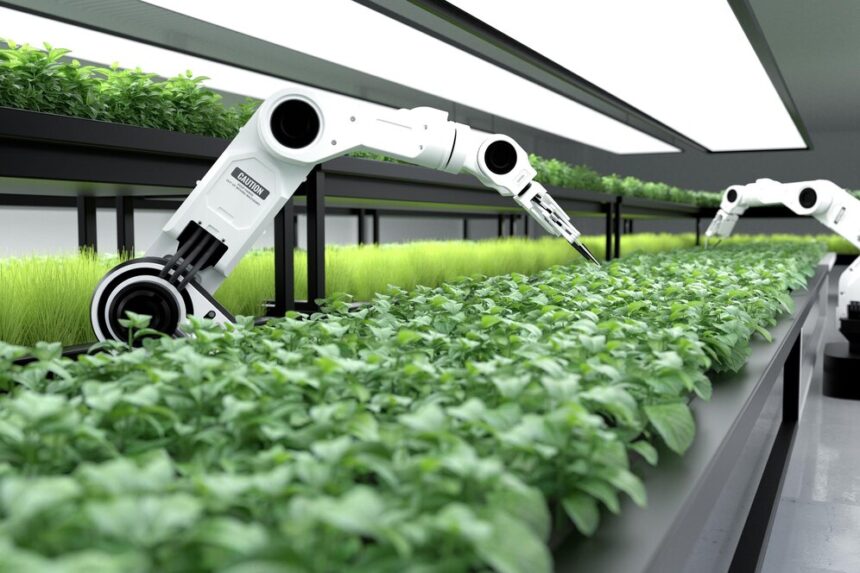Artificial intelligence (AI) is set to revolutionize South African agriculture by improving efficiency, increasing yields, and reducing costs. With the country’s farming sector facing challenges such as climate change, labor shortages, and resource limitations, AI-driven technologies offer innovative solutions to enhance productivity and sustainability.
1. Precision Farming
AI-powered precision farming enables farmers to monitor and manage crops with greater accuracy. By using drones, sensors, and satellite imagery, AI can analyze soil conditions, detect plant diseases, and optimize irrigation schedules. This reduces waste and ensures that crops receive the right amount of nutrients and water at the right time.
2. Automated Machinery and Robotics
AI-driven tractors, drones, and robotic harvesters are reducing the need for manual labor in South African farms. These machines can plant seeds, spray fertilizers, and harvest crops with high precision, increasing productivity while lowering operational costs.
3. Pest and Disease Control
AI can help detect and control pests and diseases before they cause significant damage. Machine learning algorithms analyze images of crops to identify early signs of infestations, allowing farmers to take preventive measures. This reduces the need for excessive pesticide use, making farming more sustainable.
4. Climate and Weather Prediction
South African farmers often struggle with unpredictable weather patterns. AI can analyze historical and real-time weather data to provide accurate forecasts, helping farmers make informed decisions about planting and harvesting times. This minimizes losses due to droughts, floods, or unexpected climate changes.
5. Smart Irrigation Systems
Water scarcity is a major challenge in South Africa. AI-driven irrigation systems use data from soil moisture sensors to regulate water usage efficiently. These systems ensure that crops receive adequate water while preventing overuse, leading to better conservation of water resources.
6. Supply Chain and Market Optimization
AI can improve the agricultural supply chain by predicting demand, optimizing logistics, and reducing post-harvest losses. Farmers can use AI-powered platforms to find the best prices for their produce, connect with buyers, and streamline distribution channels, ensuring better profitability.
7. Financial and Risk Management
AI-driven financial tools help farmers access credit, insurance, and investment opportunities. By analyzing farm data and market trends, AI can assess risks, recommend the best financial options, and help farmers secure loans with better terms.
AI is poised to transform South African agriculture by making farming smarter, more efficient, and more sustainable. As technology continues to evolve, AI will play a crucial role in ensuring food security and economic growth in the agricultural sector.
Join 'Farmers Mag' WhatsApp Channel
Get the latest Farming news and tips delivered straight to your WhatsApp
CLICK HERE TO JOIN






